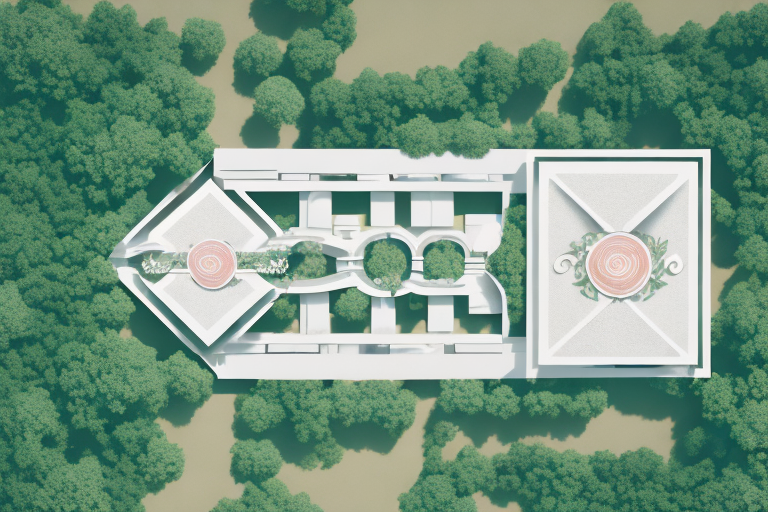In the realm of aerial wedding photography, composition plays a pivotal role in capturing captivating and visually stunning images. The art of crafting balanced compositions is essential for showcasing the beauty and emotion of these special moments from a unique perspective. In this article, we will delve into the importance of composition and balance in aerial wedding photography, and explore various techniques and considerations that can help you achieve harmonious and visually appealing compositions.
Understanding the Importance of Composition in Aerial Wedding Photography
Composition is the arrangement and placement of visual elements within a photograph. It is the foundation upon which great images are built. In aerial wedding photography, the aerial perspective offers a distinct advantage, allowing you to capture expansive landscapes, intricate details, and dramatic angles. However, without thoughtful composition, these elements can easily become overwhelming or lose their impact.
To create compelling compositions in aerial wedding photography, it is crucial to consider the placement and arrangement of key elements within the frame. This includes the positioning of the couple, the surroundings, and other objects of interest. By understanding the principles of composition and utilizing them effectively, you can create visually balanced images that draw the viewer’s attention and tell a captivating story.
One important aspect of composition in aerial wedding photography is the use of leading lines. Leading lines are elements within the photograph that guide the viewer’s eye towards the main subject or focal point. In aerial photography, leading lines can be created by using natural elements such as roads, rivers, or pathways, or by incorporating man-made structures like fences or buildings. These lines help to create depth and add visual interest to the image, leading the viewer’s gaze towards the couple or other important elements in the frame.
The Role of Balanced Compositions in Captivating Aerial Wedding Photos
One of the primary goals of creating balanced compositions in aerial wedding photography is to ensure that all elements within the frame work harmoniously together. Balance refers to the distribution of visual weight in a photograph. A balanced composition creates a sense of equilibrium and harmony, leading to visually pleasing and captivating images.
There are two main types of balance that can be achieved in aerial wedding photography: symmetrical balance and asymmetrical balance. Symmetrical balance involves having a subject or objects placed symmetrically within the frame, creating a sense of stability and order. Asymmetrical balance, on the other hand, involves the careful arrangement of different elements with varying visual weight to create a sense of balance through contrast and harmony.
By considering the balance of elements in your aerial wedding photography compositions, you can create images that are visually engaging, create a sense of harmony, and draw the viewer’s attention to key focal points.
Another important aspect to consider when aiming for balanced compositions in aerial wedding photography is the use of leading lines. Leading lines are lines within the frame that guide the viewer’s eye towards the main subject or focal point of the photograph. These lines can be natural elements such as roads, rivers, or tree branches, or they can be man-made elements like fences or pathways. By incorporating leading lines into your compositions, you can create a sense of depth and movement, enhancing the overall visual impact of your aerial wedding photos.
Exploring the Art of Aerial Wedding Photography: Composition and Balance
Creating balanced compositions in aerial wedding photography is an art form that requires a keen eye and a thoughtful approach. Here are some key considerations and techniques to help you achieve balance in your compositions:
1. Rule of Thirds: The rule of thirds is a fundamental composition technique that involves dividing the frame into nine equal parts using two horizontal and vertical lines. By placing key elements of your composition along these lines or at their intersections, you can create a visually pleasing and balanced image.
2. Leading Lines: Incorporating leading lines in your aerial wedding photography compositions can help guide the viewer’s eye and create a sense of depth and dimension. These lines can be natural elements such as roads or rivers, or man-made elements such as fences or pathways. By positioning these lines strategically within the frame, you can enhance the overall balance and visual interest of your images.
3. Utilize the Surroundings: Aerial wedding photography offers a unique perspective for capturing the surrounding landscapes or architectural elements. By incorporating these elements into your compositions, you can add depth and context to your images, creating a more balanced and visually captivating result.
4. Color Theory: Consider the color palette of your aerial wedding photography compositions to achieve balance. Use complementary colors to create harmony and contrast, or experiment with monochromatic tones for a more minimalist and balanced look.
5. Foreground and Background: Pay attention to the foreground and background elements in your aerial wedding photography compositions. By including interesting foreground elements, such as trees or buildings, you can add depth and create a more balanced composition. Additionally, be mindful of the background to ensure it complements the main subject and doesn’t distract from the overall balance of the image.






